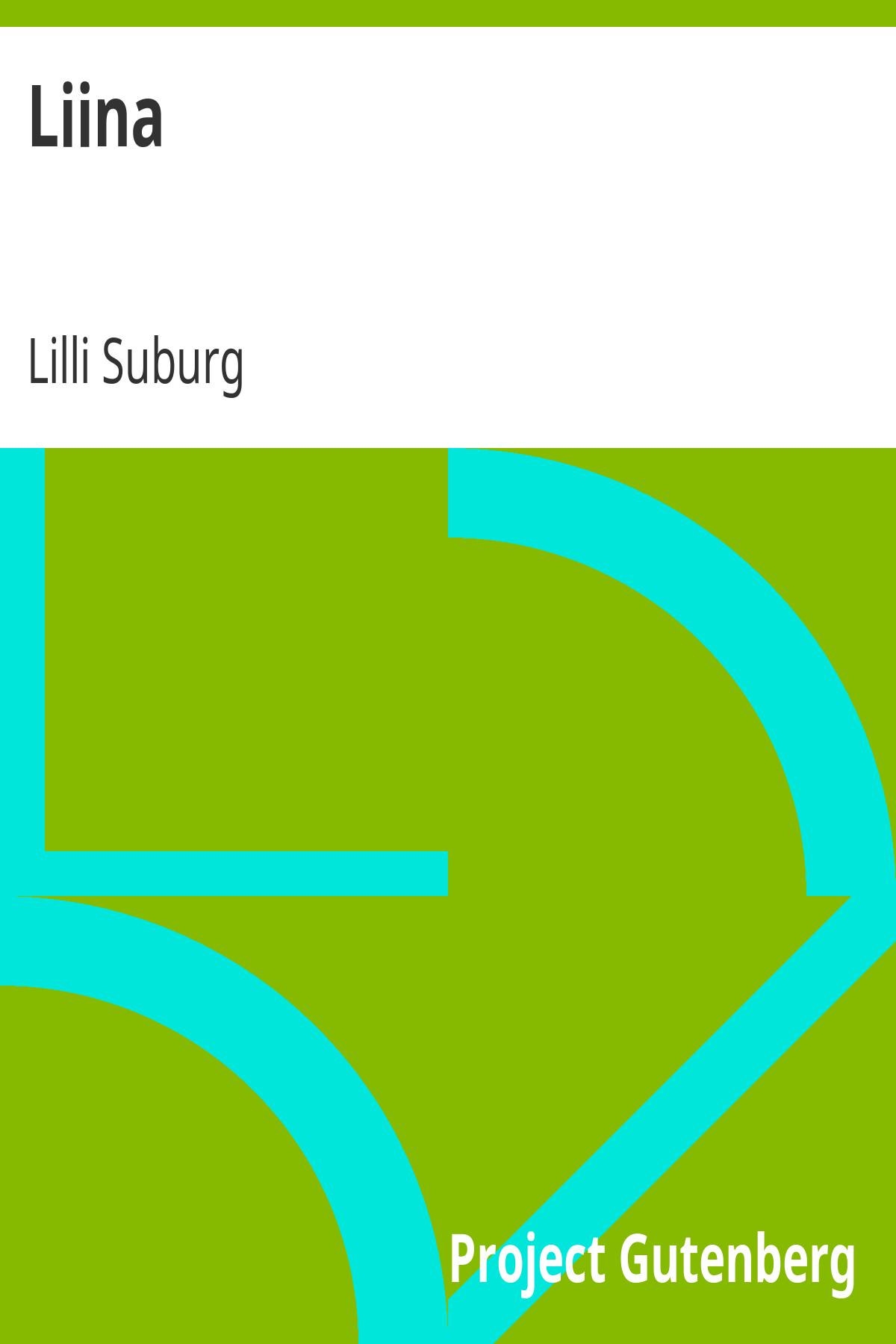The Cats Came Back - Magical Cats
Cozy Mystery 10 Sofie Kelly Et El
Visit to download the full and correct content document: https://textbookfull.com/product/the-cats-came-back-magical-cats-cozy-mystery-10-so fie-kelly-et-el/
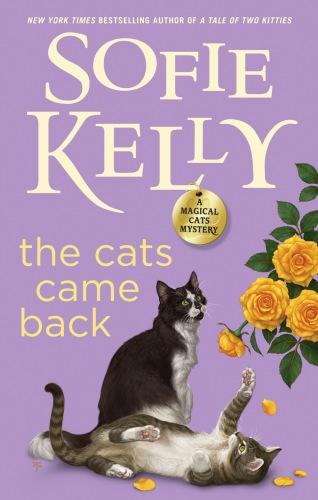
More products digital (pdf, epub, mobi) instant download maybe you interests ...
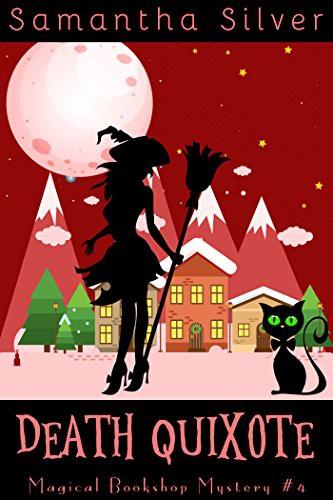
Death Quixote Magical Bookshop Cozy Mystery 04 Samantha
Silver Et El
https://textbookfull.com/product/death-quixote-magical-bookshopcozy-mystery-04-samantha-silver-et-el/

Custard Crime Donut Cozy Cozy Mystery 14 Jessica Beck
Et El
https://textbookfull.com/product/custard-crime-donut-cozy-cozymystery-14-jessica-beck-et-el/

Counterfeit Confections Donut Cozy Cozy Mystery 41
Jessica Beck Et El
https://textbookfull.com/product/counterfeit-confections-donutcozy-cozy-mystery-41-jessica-beck-et-el/

The Hole Truth Donut Shop Cozy Mystery 52 Jessica Beck
Et El
https://textbookfull.com/product/the-hole-truth-donut-shop-cozymystery-52-jessica-beck-et-el/

Lemon Larceny Donut Shop Cozy Mystery 015 Jessica Beck
Et El
https://textbookfull.com/product/lemon-larceny-donut-shop-cozymystery-015-jessica-beck-et-el/



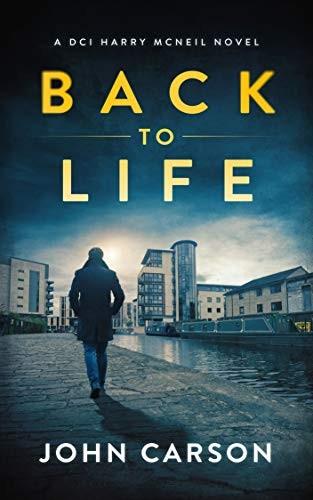
Dangerous Dough Donut Shop Cozy Mystery 018 Jessica
Beck
Et El
https://textbookfull.com/product/dangerous-dough-donut-shop-cozymystery-018-jessica-beck-et-el/
Troubled Treats Donut Shop Cozy Mystery 19 Jessica Beck
Et El https://textbookfull.com/product/troubled-treats-donut-shop-cozymystery-19-jessica-beck-et-el/
Blended Bribes Donut Shop Cozy Mystery 43 Jessica Beck
Et El https://textbookfull.com/product/blended-bribes-donut-shop-cozymystery-43-jessica-beck-et-el/
Back to Life - DCI Harry McNeil Mystery 2 John Carson
Et El
https://textbookfull.com/product/back-to-life-dci-harry-mcneilmystery-2-john-carson-et-el/
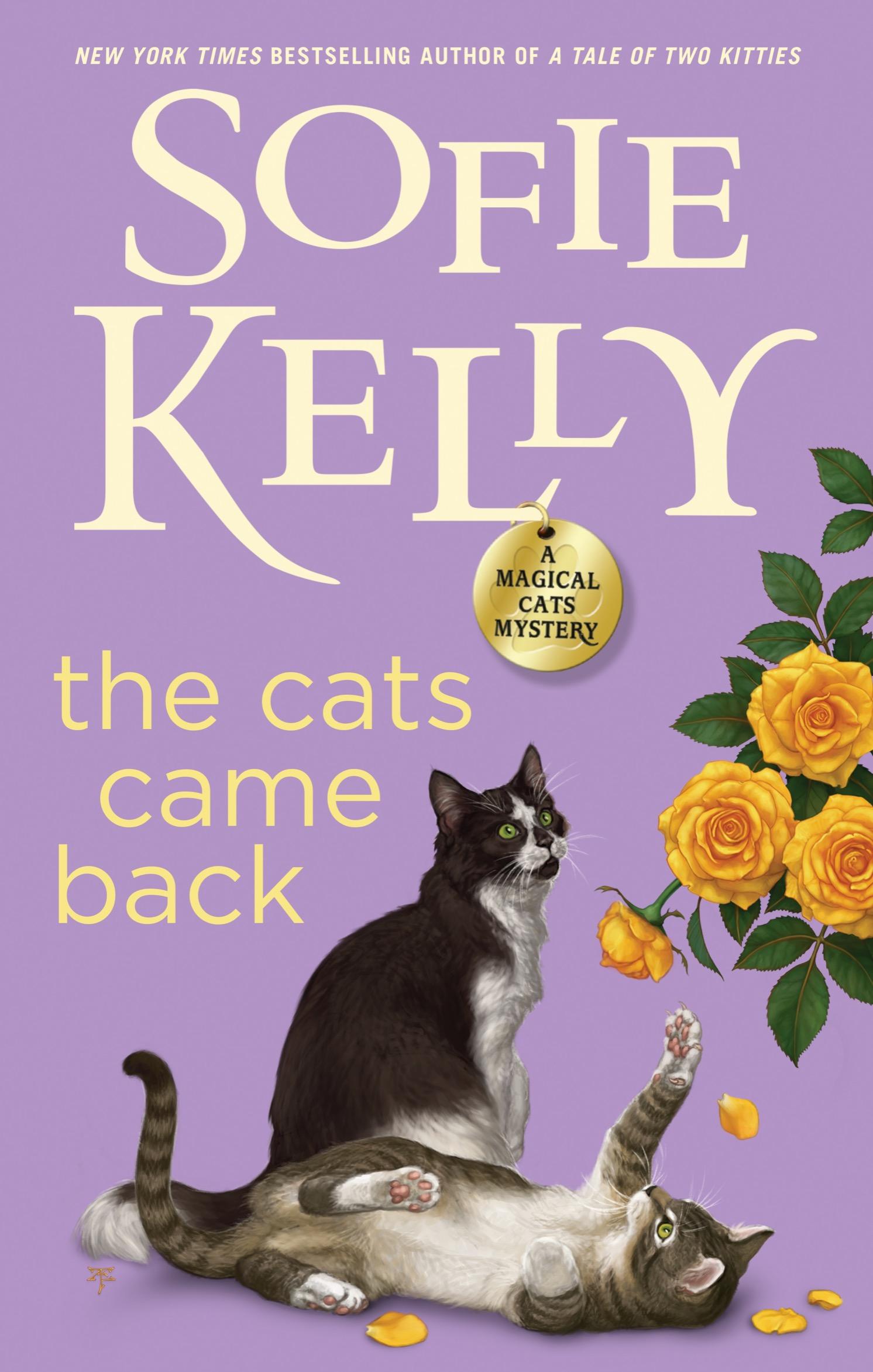
TITLES BY SOFIE KELLY
curiosity thrilled the cat sleight of paw copycat killing cat trick final catcall a midwinter’s tail faux paw paws and effect a tale of two kitties the cats came back
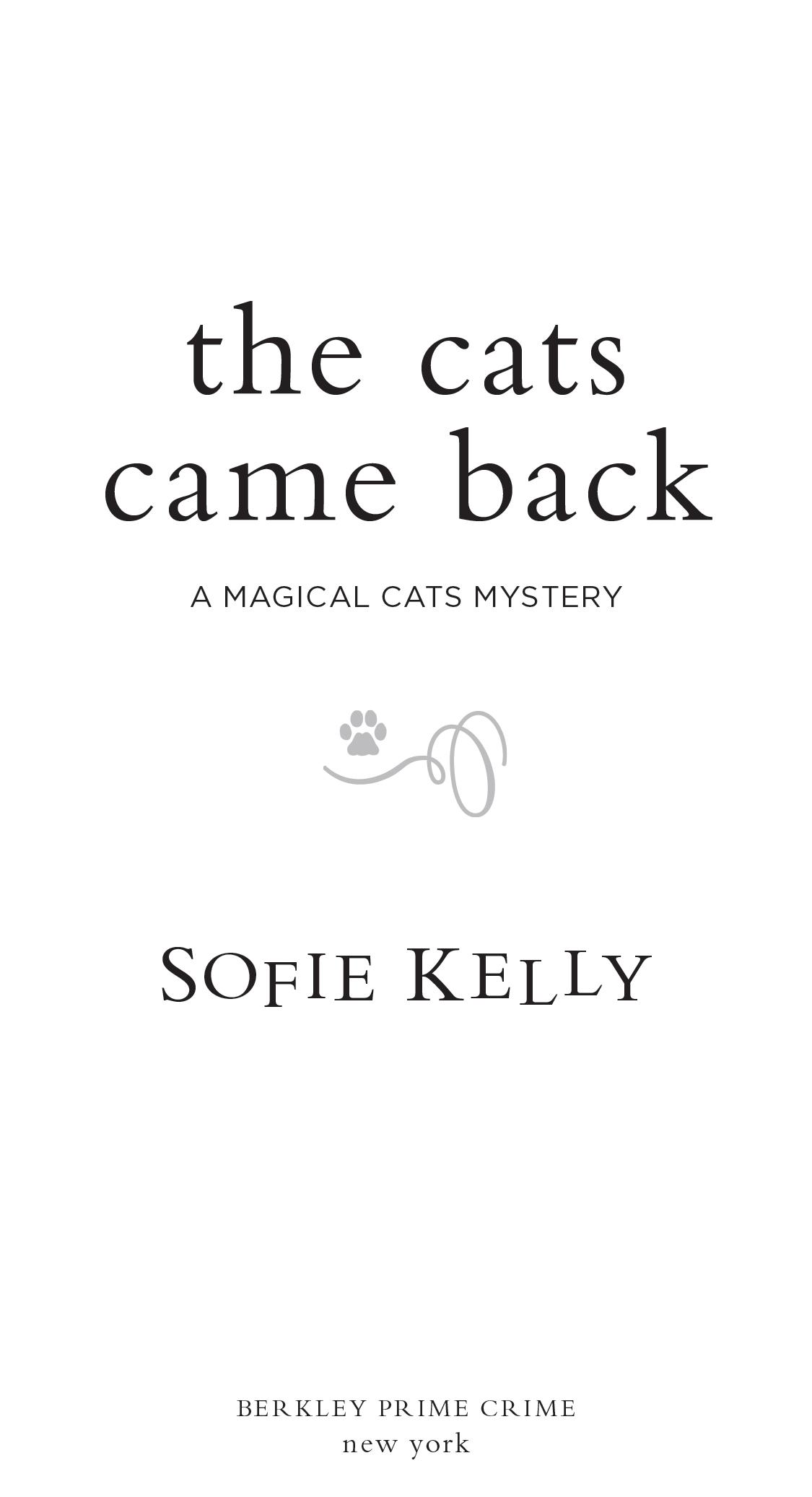
BERKLEY PRIME CRIME
Published by Berkley
An imprint of Penguin Random House LLC
375 Hudson Street, New York, New York 10014
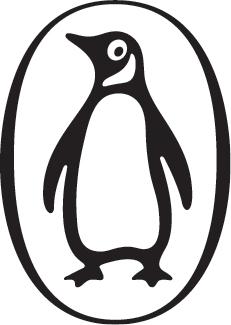
Copyright © 2018 by Penguin Random House LLC
Penguin Random House supports copyright. Copyright fuels creativity, encourages diverse voices, promotes free speech, and creates a vibrant culture. Thank you for buying an authorized edition of this book and for complying with copyright laws by not reproducing, scanning, or distributing any part of it in any form without permission. You are supporting writers and allowing Penguin Random House to continue to publish books for every reader.
BERKLEY and the BERKLEY & B colophon are registered trademarks and BERKLEY PRIME CRIME is a trademark of Penguin Random House LLC.
Library of Congress Cataloging-in-Publication Data
Names: Kelly, Sofie, 1958– author.
Title: The cats came back / Sofie Kelly.
Description: First edition. | New York : Berkley Prime Crime, 2018. | Series: Magical cats ; 10
Identifiers: LCCN 2018014151| ISBN 9780399584596 (hardcover) | ISBN 9780399584602 (ebook)
Subjects: LCSH: Cat owners—Fiction. | Women librarians—Fiction. | Cats—Fiction. | Murder—Investigation— Fiction. | BISAC: FICTION / Mystery & Detective / Women Sleuths. | GSAFD: Mystery fiction.
Classification: LCC PR9199.4.K453 C39 2018 | DDC 813/.6—dc23 LC record available at https://lccn.loc.gov/2018014151
First Edition: September 2018
Cover art by Tristan Elwell
Cover design by Rita Frangie
This is a work of fiction. Names, characters, places, and incidents either are the product of the author’s imagination or are used fictitiously, and any resemblance to actual persons, living or dead, business establishments, events, or locales is entirely coincidental.
Version_1
TitlesbySofieKelly
TitlePage
Copyright Acknowledgments
Chapter 1
Chapter 2
Chapter 3
Chapter 4
Chapter 5
Chapter 6
Chapter 7
Chapter 8
Chapter 9
Chapter 10
Chapter 11
Chapter 12
Chapter 13
Chapter 14
Chapter 15
Chapter 16
Chapter 17
Chapter 18
Chapter 19
Chapter 20
Chapter 21
contents
AbouttheAuthor
acknowledgments
This is the tenth book in the Magical Cats Mysteries, an achievement that didn’t seem possible when the series began and that wouldn’t have happened without so many wonderful, supportive readers. Thanks to all of you.
My agent, Kim Lionetti, is and has always been one of my biggest cheerleaders. Thanks, Kim!
This book in particular, and the series in general, has benefitted from the talents of my editor at Berkley, Jessica Wade, who always makes me look good. Thanks go as well to Tara O’Connor, for getting the word out about Kathleen, Hercules and Owen’s latest adventures.
And, as always, thanks to Patrick and Lauren. So happy you’re my tribe!
chapter 1

The body was on the front seat of my truck, about halfway between the passenger door and the cloth grocery bag I’d left in the middle of the seat.
“Not again,” I muttered, setting the box of glasses I was holding in the bed of the truck. I glanced at my watch. I couldn’t exactly leave the body where it was, but I didn’t want to be late, either.
A flash of movement registered at the edge of my vision. I let out a breath as what I’d caught a glimpse of came into focus. A second corpse, small, furry and rodentlike, just like the one on the seat, appeared to be hovering about three inches above the hood of the truck.
I narrowed my eyes in the general direction of the seemingly levitating body. “Very nice, Owen,” I said. “I’m sure Everett will be happy to learn that the offender who’s been digging up his onion sets has been dealt with.”
Everett Henderson, my backyard neighbor, had been waging a war all summer long against a persistent and aggressive vole that seemed to be digging up whatever he planted just as quickly as he planted it—for sport, Everett insisted. His wife, Rebecca, had tried to convince him that if he’d just leave the vole one small area to dig in, it would leave the rest of the garden alone. But Everett wasn’t willing to concede one square inch of the yard to what he called “a thieving interloper.” He’d tried tenting the entire garden with netting, setting out a perimeter of mothballs, putting a large owl statue on an
overturned galvanized bucket in the middle of the bed and even spraying a boundary around the garden of a pest control product that allegedly contained fox urine. The vole had been undeterred. It had, however, met its match in Owen, it seemed.
Just then the small gray-and-white tabby appeared—literally—on the hood of the truck, holding the dead vole in his mouth. There had been a time when Owen’s ability to appear and disappear at will had been disconcerting; now it was just something he did, a quirk, like the way he had to inspect his food before he ate it or how he loved to ride shotgun in the truck. There was a gleam of satisfaction in his golden eyes as he looked at me. I felt sorry for the dead rodent. It had never stood a chance against the cat.
Owen and his brother, Hercules, had spent the early part of their lives—at least as far as I knew—out at Wisteria Hill, Everett Henderson’s former family homestead. Both cats were excellent hunters, a skill that had most likely been honed during that time.
I pointed toward the backyard. “We don’t want to keep Ruby waiting,” I said, making a hurry-up gesture with one finger. Normally, since it was Thursday, I would have already been on my way to tai chi class, but it had been canceled. My friend Maggie Adams, who was the instructor, was over at the Stratton Theatre, supervising the installation of artwork from the artists’ co-op that she was past president of.
Owen immediately jumped down to the driveway and headed for the backyard, the dead vole still firmly in his mouth, passing Hercules on the path that wound around the side of the house. They exchanged a silent glance, the kind of mute exchange I’d seen pass between them dozens of times. Sometimes I wondered if they used a kind of mental telepathy to communicate. Given their other skills the idea really wasn’t that far-fetched.
Hercules launched himself onto the hood of the truck in his brother’s place. He gave himself a shake and then padded over to me. “Mrrr,” he said, cocking his head to one side, and it seemed to me there was a question in the sound.
I reached over to stroke the soft black fur on the top of his head. “Yes,” I said. “I think Everett’s garden may be safe, at least for now.” I glanced at the front seat, where the other furry corpse still lay. Whatever it was, it didn’t look like another vole. I turned my attention back to Hercules. “We have to leave in a minute.” I tipped
my head toward the windshield. “Could you move that so I don’t have to go get a shovel?”
He craned his neck to see what I was gesturing at, then he walked through the windshield, landing lightly on the front seat. Unlike Owen, Hercules couldn’t become invisible on a whim. He could, however, walk through walls, doors and windows, through pretty much any obstruction that got in his way.
The first time I’d seen him do that, I thought I’d imagined it. I thought I was overtired, that my eyes were playing tricks on me or I needed glasses. My knees had started to shake so hard that I’d had to sit down on the floor before I fell down. That time Hercules had vanished into one of the library’s meeting rooms. He hadn’t darted past me. He had walked through the solid wooden door to the small meeting room just as though it wasn’t there, and it almost seemed as though there had been a faint pop as the end of his tail had disappeared.
I remembered how I had pressed my hands on the door, pushing at the smooth wood, looking for some kind of secret opening or hidden panel. But the door had been thick and unyielding. The second time I’d witnessed the cat walk through a solid wall, I’d been afraid I was having some sort of mental breakdown. Now, like Owen’s disappearing act, it was just Hercules being Hercules.
It had never felt like a good idea for anyone to find out what the cats could do, so I’d always kept that piece of information to myself. I hadn’t told anyone, including Marcus. Detective Marcus Gordon was logical, sensible and practical—and very handsome. I was crazy about him. I couldn’t keep this kind of secret from him much longer, especially since I’d discovered his cat, Micah, shared Owen’s talent for disappearing. The fact that all three cats came from the old Henderson estate had to have something to do with their abilities. I just had no idea what.
The little black-and-white furball was sniffing Owen’s second victim now. He nudged the corpse with his nose and finally picked it up in his mouth, making his way over to the open driver’s door, where he dropped his burden on the edge of the seat. He made a face, crinkling his nose and scraping his tongue against his teeth as though he were trying to get rid of a bad taste. He looked up at me, green eyes slightly annoyed.
“What?” I said. I knew that look.
He poked the body with one white-tipped paw. I leaned down for a closer look.
The furry corpse wasn’t a corpse at all, I realized. It was actually a large, dark gray pom-pom made out of some kind of faux fur material.
“Okay, where did that come from?” I asked. I slipped a covered elastic from my wrist and smoothed my hair back off my face into a ponytail. I’d had the long, dark layers trimmed over the weekend, but my hair was still long enough to pull it back when I wanted to.
The cat gave me a blank stare. He didn’t seem to have any idea, either. Then I remembered that last night when Maggie had stopped by, she’d had a bag of items from fiber artist Ella King that were going to the artists’ co-op store that Maggie helped manage.
Owen adored Maggie; he had a pack rat streak that went with his natural cat inquisitiveness and he wasn’t above swiping something that took his fancy. From time to time I’d caught him raiding Everett and Rebecca’s recycling bin. Had he swiped the fuzzy ball from Maggie’s bag?
I picked up the pom-pom and leaned around the door of the truck. “Owen,” I called.
In a moment he poked his head around the side of the house. Part of a dried leaf was stuck to his left ear. What? his expression seemed to say.
I held up my hand, the ball of gray fur dangling from between my thumb and index finger. “Explain this,” I said.
The cat made his way over to me, making low muttering noises in the back of his throat. He jumped up onto the front seat next to Hercules, glaring at his brother as though he thought he’d been ratted out. Hercules pointedly moved sideways onto the passenger side of the truck, lifting his chin and gazing out the window with a bit of a self-righteous attitude.
I was still holding on to the pom-pom. Owen tried to grab it from me, coming up on his hind legs, but I’d seen his tail twitch from the corner of my eye just before he moved and for once I was faster. I whipped my hand behind my back. “Were you rooting around in Maggie’s bag last night?” I said sternly.
The little gray tabby immediately ducked his head as though he’d suddenly discovered something engrossing on the blanket that covered the bench seat.
I stretched across the seat and stashed the pom-pom in the glove compartment. I was pretty sure Owen’s skills didn’t extend to popping that open.
“I know you love Maggie,” I said. I suspected that was why he’d swiped the gray ball of faux fur. In his kitty reasoning he’d expected to be caught and that we’d make a trip to return what he’d taken and he’d be adorable and contrite.
Or maybe I was attributing too human a motive to a cat, albeit a pretty extraordinary cat. Maybe it was simply a case of Owen see, Owen like, Owen take.
I leaned in close to his furry gray face, and he tried to avoid meeting my gaze by staring down at his front paws. “You shouldn’t take things that don’t belong to you,” I said. “We’ve had this discussion before, Owen.”
His golden eyes met mine for a moment. He made a couple more disgruntled noises, then settled himself on the seat and looked out the windshield. I noticed he was careful to keep some space between himself and his brother.
I grabbed the small canvas backpack I had placed on the roof of the cab, along with the box of glasses that was in the bed of the truck, and reached inside to set both on the floor on the passenger side, smiling at Hercules as I did so. Then I slid behind the wheel, pulled out my keys and stuck them in the ignition. We had just enough time to get downtown to meet Ruby. Hopefully, the extra traffic from the music festival wouldn’t slow us down getting across town.
The Wild Rose Summer Music Festival took place every year in late August here in Mayville Heights. Musicians and vocalists—both professional and amateur—came to town from all over the Midwest to work with several well-respected and increasingly well-known teachers and conductors. The highlight of the event was the closing concert, held in the restored Stratton Theatre with a massed orchestra and choir performing everything from classical pieces to rock-and-roll standards—but there were lots of other performances before that. I’d taken in one of the lunchtime events just a couple of days before. The festival brought a lot of tourists to town. Many people planned their vacations around it.
We started down Mountain Road, and I could see almost the entire town spread out along the river. The original settlers of Mayville Heights had taken the shortest route to get where they were
going, which meant the town was laid out pretty much like a grid. Streets like Mountain Road stretched, for the most part, straight up the hill to Wild Rose Bluff, which the music festival was named for. The streets that ran from one end of Mayville Heights to the other all followed the shoreline of Lake Pepin, which was the largest lake on the Mississippi River. Much like Loch Ness in Scotland, there had been rumors that the lake was home to some kind of prehistoric creature. However, since most sightings of the creature seemed to involve the consumption of large amounts of alcohol, it was a rumor most people took with a very big grain of salt.
There was more traffic downtown on Old Main Street—not to be confused with just plain Main Street—than on a typical Thursday night, but I still made it to the Riverarts building with five minutes to spare. Ruby Blackthorne’s art studio was in the big brick building. The former school had been converted into working space for Mayville Heights’ artist community a number of years ago, a joint project of the artists’ co-op and the town. The partnership between the co-op and the town had been good for everyone. Not only were the artists responsible for bringing more tourists to town to take workshops and buy artwork, they’d also helped reverse a trend that other small towns were seeing: populations that skewed increasingly older as young people headed for more opportunities in the city. As my friend Burtis Chapman liked to put it, those places were getting older and grayer by the day. Thanks to Ruby and Maggie and the other artists, that wasn’t happening in Mayville Heights.
Ruby was just coming out of the back door of Riverarts when I pulled into the small parking lot. I backed into Maggie’s spot while Hercules looked out the passenger-side window and Owen craned his neck to see over the dashboard.
“Stay here for a minute,” I said to the boys.
Hercules twitched his whiskers at me. Owen basically ignored me, starting across my lap as though he were going to go right out the driver’s door—assuming he could figure out how to use his paws to open it.
I put one hand on his back. “Where are you going?” I asked.
“Mrr,” he muttered as he tried to wriggle out of my grasp.
“I want to give Ruby the glasses she asked to borrow and find out where she wants to shoot. You can wait for a minute.”
He lifted his head to look at me, ears twitching in annoyance.
Ruby was on her way over to the truck, smiling. I bent my head close to the cat. “I know what you’re thinking,” I whispered, in case Ruby somehow had bionic hearing. “It wouldn’t be good if this whole photo session had to disappear.” I put a little emphasis on the last word.
Hercules meowed at his brother. A warning maybe to just let it go? Owen made a huffy sound through his nose, his way of letting me know that he was doing what I wanted under duress. But he did sit back down on the seat.
“Thank you,” I said. I leaned over, grabbed the box of glasses and got out of the truck.
Ruby smiled. “Oh, hey, you remembered,” she said. “Thanks.” She took the box from me, peering inside.
“Are you sure those will be enough?”
“Yeah, this is great,” she said. “How did you end up with so many drinking glasses, anyway? Did you go a little crazy at a yard sale or something?”
I smiled back at her. “I didn’t. It had to be the person who lived in my house before me—or maybe it was Lita.”
Lita was Everett Henderson’s assistant. Not only was Everett my neighbor, he had also hired me to supervise the renovations at the library for its centennial. My little farmhouse was one of the benefits that came with the job. It was almost four years now since I’d come to Mayville Heights. The head-librarian position had been a temporary eighteen-month appointment, but when the time was up I found myself wanting to stay in the job. Luckily, the library board had felt the same way.
“I bet it was Lita,” Ruby said. “She was a Girl Scout. I think she had pretty much every badge they give out. Isn’t their motto ‘Be Prepared’?”
“‘A Girl Scout is ready to help out wherever she is needed,’” I recited. “‘Willingness to serve is not enough; you must know how to do the job well, even in an emergency.’”
Ruby raised an eyebrow at me. I felt my cheeks get warm. “It’s from the Girl Scout manual. I read it somewhere.”
Her smile stretched into a grin. “Kathleen, you’re better than the Web. I know you’re always a reliable source.” She leaned around me and waved at the driver’s window of the truck.
Owen was standing up on his back legs, front paws on the door, looking at Ruby through the side window.
She held up a finger. “Give me a second,” she said. I knew she was talking to Owen, not to me.
I wasn’t the least bit surprised when the cat bobbed his head in acknowledgment as though he’d understood—and I was certain he had—and then sat down.
Ruby didn’t seem surprised, either. I wasn’t the only one who talked to the cats like they were . . . well, people. Everyone seemed to accept that Owen and Hercules were more than just everyday cats, although no one else knew exactly how extraordinary they really were.
Ruby tipped her head to one side and looked up at the sky. I’d seen her do that enough times to know she was considering the light. “It’s not going to be dark for a while,” she said. “I’ve been wanting to try some photos just before sunset. When the sun is low in the sky the shadows are softer and longer. I think I can get some really dynamic images.” She held the box of glasses against her chest with one hand and gestured with the other as if she were painting in the air. “So is it okay if we do the inside shots first?”
“Do whatever works for you,” I said.
A few weeks earlier Ruby had taken a photo of Owen and Hercules on the steps of the library, seemingly studying a map of Mayville Heights. Maggie had created the hand-drawn, incredibly detailed map of the town, and it had turned out to be very popular with tourists, even more so after another artist, Ray Nightingale, posted Ruby’s photo of the boys online and it went viral. Tourists actually came into the library building looking for the cats. Now Ruby was doing a series of photos with them for a calendar to promote Mayville Heights and the surrounding area. Everett Henderson was funding the project.
Both cats loved having their picture taken, although Owen was by far the bigger ham. Ruby had photographed each cat in the past, using the photos as the basis for two oversized acrylic pop-art portraits she’d painted. Both had been auctioned off as fundraisers for the cat rescue organization Cat People.
No one seemed surprised that Ruby could get Owen and Hercules to pose for her even though cats didn’t exactly have a reputation for
doing what you wanted them to do when you wanted them to do it— or ever doing it at all.
“As long as I’ve known Ruby she’s had a rapport with animals,” Maggie had said the night before, sitting at my kitchen table, licking chocolate icing from a cheesecake brownie off her thumb while Owen sat adoringly at her feet. “And anyway, Owen and Hercules aren’t regular everyday cats,” she’d continued, sneaking a tiny bite of her dessert to her furry gray shadow—something that would have landed her in the doghouse, pun intended, if our friend Roma had been around. Maggie had caught me watching her, and both she and Owen had looked up at me, faux innocence in her green and his golden eyes.
“Owen and Hercules are special,” Maggie had added, an edge of self-righteousness in her voice as though that “specialness” explained everything from how photogenic they were to how Owen deserved a piece of her brownie.
You don’t know the half of it, I’d thought.
I got both cats out of the truck now. Hercules agreeably climbed into the cat carrier. I left the top panel unzipped so he could poke his head out and slung the bag over my shoulder. I decided to carry Owen because of the two, he was the more likely to disappear— figuratively and literally. The cats had been feral and didn’t like to be touched by anyone other than me, so Ruby didn’t offer to help. I closed the door of the truck with my hip, and we followed Ruby into the building.
“How’s practice going?” I asked as we headed up the stairs. As in previous years, Ruby was in the festival choir, and this year she was also performing with Everett’s granddaughter—Ami Lester—and cabaret singer Emme Finley.
Ruby rolled her eyes. “Just like every other year. Right now we sound like crap. Nobody knows their parts, and I swear there’s half a dozen people who couldn’t carry a tune no matter how big a bucket you gave them.”
“It can’t be that bad,” I said. The massed choir was the highlight of the final concert. In my experience it always sounded wonderful.
Ruby had a dozen years of voice training and had worked as a singer and dancer at a resort for several years during college. “It can be and it is,” she said as we rounded the second-floor landing. “We
were doing warm-ups this morning and—I’m not making this up”— she put her free hand over her heart—“I could hear dogs howling.”
Owen made a face, scrunching up his whiskers. An unfortunate encounter with Harrison Taylor’s German shepherd, Boris, had left him with a pretty low opinion of any and all dogs.
I shot her a skeptical look.
She shrugged. “Okay, so it was only one dog, and in all fairness he had treed a squirrel in the parking lot, which might have been the reason he was howling, but my point is still the same. Right now we stink.” She shifted the box of glasses onto her hip and tucked her hair behind her ear with her free hand. She was wearing it longer and layered, just brushing her shoulders. It was dyed a rich copper color, like a newly minted penny, instead of her usual neon-colored streaks.
Hercules craned his neck in Ruby’s direction and gave a murp of concern. At least that’s what it sounded like to me. Last year I’d bought a CD of the final festival concert. Whenever I played it Hercules would listen with his head tipped to one side, eyes closed. I didn’t think I was imagining that he liked what he heard. Hercules was much more of a music lover than Owen. He shared my love for Mr. Barry Manilow, something Owen decidedly didn’t.
Ruby leaned around me and smiled at Hercules. She’d once seen him “listening” to the CD in my office. “Don’t worry,” she said. “We’ll be ready.”
The cat’s green eyes flicked to me.
“Uncle Mickey will work his magic,” I said by way of reassurance.
Ruby nodded.
Uncle Mickey was family friend Michel Demarque, brilliant conductor, composer, pianist and world-class flirt. My mother, Thea Paulson, was an actor and a director. Mom and Michel had worked together on a Stephen Sondheim musical many years ago in Vermont and stayed in touch—much to my dad’s chagrin. Michel reminded me of actor Hugh Jackman—dark eyes in a wonderfully expressive face and the ability to command the attention of every room he stepped into.
Ruby talked more about some of the pieces—a mix of classical and contemporary—that they were working on as we continued up the stairs to her studio. “I’m looking forward to the concert,” I said.
Hercules meowed loudly from my hip.
I laughed. “Apparently so is Hercules.”
Ruby grinned at the cat. “Don’t worry,” she said. “I’ll set aside a CD for you.”
Owen twisted restlessly in my arms. I had the feeling all the talk about the festival was boring him. Ruby unlocked the door to her studio and I set him down. He made a quick circuit of the space and then looked expectantly at Ruby.
“There,” she said, pointing at a length of counter space. The town map was spread on the paint-spattered surface. I moved to pick Owen up, but he launched himself onto the counter before I could, landing lightly on the center of the map. He shook himself and began to check out the various art supplies that were spread out over the dark wood surface. I took Hercules over, lifted him out of the cat carrier bag and set him down next to his brother.
He put each white-tipped paw down gingerly.
“It’s okay,” I said softly. “I don’t see any wet paint.”
Ruby had set the box of glasses on a chair and was bringing her tripod over to the counter. “Everything is clean and dry. I promise,” she said, as much to Hercules as to me. She knew all about his distaste for wet or dirty feet.
I smoothed the fur on the top of his head. “You look very handsome,” I whispered.
Owen’s golden eyes darted in my direction.
“You too,” I said, reaching over to give him a little scratch between his ears.
He immediately took a couple of passes at his face with a paw.
I took several steps back, snagged a stool and sat down out of the way where I could watch Ruby work.
She fastened her camera to the base of the tripod and then got busy posing Owen and Hercules. I was fascinated by the process every time. Since she couldn’t actually pick the cats up or move them around, Ruby would tap the counter with a finger or direct them with a quick hand motion. And most of the time they seemed to understand what she wanted. She talked quietly to them all the time, just the way I suspected she would have done if she’d been working with people. Once, when neither cat seemed to want to go where she wanted them to, Ruby looked through the viewfinder of her camera and then muttered, “Yeah, okay, you’re right. That works better.”
Finally, she straightened up, linking both hands on top of her head, stretching out her neck and shoulders. Then she grabbed her
backpack and pulled out a small brown paper bag with a fold-over top. “Roma-approved,” she said, holding up the bag so I could see that it held the organic cat crackers made by one of Roma’s friends who, like her, was a veterinarian.
“Yes, go ahead,” I said.
Ruby poured a little pile of the treats in front of each cat. “Good job, guys,” she said. She took the camera off the tripod and brought it over to me. “What do you think?” she asked, scrolling through the images.
“I know I’m biased,” I said. “But they’re all wonderful. You’re a great photographer.”
She smiled. “Owen and Hercules are very photogenic. Don’t tell anyone, but I swear they’re easier to work with than some people. This calendar is going to be amazing.”
Owen lifted his head and seemed to smile in our direction as though he’d understood the compliment. And he probably had.
After the cats had finished eating and had cleaned the cracker crumbs from their whiskers, we moved outside. Ruby wanted to take some photos in front of the building. She’d just taken several shots on the grass near the flagpole when I caught sight of two people coming up the sidewalk.
As they got closer I realized the two women were Emme Finley and Miranda Moore. Emme, who was in her early thirties, was a popular cabaret singer from Chicago. Her friend Miranda Moore worked as her assistant. Ruby had introduced us at the library. As part of the festival, several of the musicians taking part were giving public lectures at the library as a way to generate more interest in the festival. Emme had given a talk about rhythm. She was an engaging speaker, and although I couldn’t carry a tune even if I used both hands, I’d been fascinated.
Emme smiled as she came level with us. She was tall, at least an inch above my own five-six, but she didn’t move with the selfconsciousness some tall women did. Her thick dark brown hair was loose on her shoulders. She had strong features and the kind of knowing smile that made you think she had a secret, but if you sat next to her, maybe she’d whisper it in your ear.
Miranda looked so much like her that they could have easily been mistaken for sisters. They were almost the same height and they had the same hair color, although Miranda’s hair looked like it had been
dyed brown, while I was fairly certain Emme’s was the color she’d been born with. Miranda’s eyes were blue-gray, while Emme’s were hazel. The most obvious difference between them was the small mole above the left corner of Emme’s mouth.
“Hi, Kathleen,” Emme said. “Are we interrupting?”
Ruby had been down on one knee, trying to get a shot, but she straightened up now. “You’re not interrupting anything,” she said. “We have to take five for hair and makeup.” She pointed toward Owen, who had sat down and was meticulously cleaning his tail.
Hercules, meanwhile, was making his way across the grass to me. I took a couple of steps forward, bent and picked him up. “Merow?” he said quizzically, cocking his head and eyeing the two women with curiosity.
“Ruby’s friends,” I said in a low voice in case he was wondering who they were.
Emme looked from Hercules to Ruby. “Are these your cats that Ruby has been photographing?”
I nodded, giving Herc a scratch behind his right ear. “This is Hercules.” I gestured at Owen with my elbow. “And that’s Owen.”
Emme reached a hand in Hercules’s direction.
“Not a good idea,” Ruby said, shaking her head. “They used to be feral. The only person who can touch those two is Kathleen.” Her gaze flicked to me for a moment.
I nodded in confirmation.
Miranda put her hands behind her back. She leaned toward us and smiled at the little tuxedo cat in my arms. “Hello, Hercules,” she said.
“Mrr,” he replied.
“He’s very handsome,” she said to me.
As if he’d understood the words, the cat straightened in my arms, his chin coming up to show off his sleek white chest.
Ruby was showing Emme some of the photos she’d already taken. Owen was still working out whatever had messed up his tail.
“Is he named for the mythological hero or the campy Kevin Sorbo show?” Miranda asked.
“A bit of both,” I said. “But mostly the TV show.”
She gave me a conspiratorial smile. “I loved that show when I was a teenager. I used to pretend to be watching Baking with Julia on PBS. I’d change the channel really fast if I heard anyone coming.”
She was wearing a rose gold bracelet on her right wrist with what looked like a small locket attached. It was a very distinctive piece.
“I like your bracelet,” I said.
Miranda ran her fingers over the twisted links. “Thank you. My dad died before I was born. This is the only thing I have from his side of the family.”
Behind us Owen had apparently fixed whatever had annoyed him about the fur on his tail. He meowed loudly.
Ruby looked skyward again. “Owen’s right. We better get back to it or we’re going to lose the light.”
I set Hercules down by his brother and backed up again.
Emme came to stand beside me. “Kathleen, I meant to ask you the last time I saw you. Are you by any chance related to Thea Paulson?”
“She’s my mother,” I said.
A smile lit up her face. “I was in the chorus of a production of Mamma Mia! about five years ago in Chicago.”
“Mom was Rosie,” I finished. “She listened to so much ABBA music, even I could do the songs.” I smiled back at her. “Remember the outfit with the silver platform boots?”
Emme nodded.
“She let me wear it as my costume for Halloween.” I grinned at the memory.
“I learned so much from her.” The wind tousled her hair, and she brushed a strand away from her face. “Just watching her was better than taking an acting class, and she was always willing to answer any question anyone had.”
That sounded like my mother. She had the ability to bring out the best in people. It’s what made her a great acting partner and what was also getting her a reputation as an excellent director.
“I’ll tell her you’re here next time I talk to her,” I said.
Ruby was trying to get Owen to put his paw on a particular place on the map that was now partially unfolded on the grass. They seemed to be having creative differences.
A bit of color came to Emme’s cheeks. “I don’t know if she’d even remember me.”
“Mom remembers everyone she’s worked with,” I said. I wasn’t exaggerating. I could name a production from twenty years ago, and my mother would rattle off the names of the cast and crew. My head for trivia was probably a skill I’d inherited from her.
I was about to step in and try to convince Owen to do what Ruby wanted him to when I saw Hercules make his way around his brother and place his paw on the exact spot Ruby had been trying to get Owen to “point” to. I waited for Owen to object, but all he did was sit down and cock his head to one side—his “cute” pose.
Miranda asked a question, but I didn’t catch it or Ruby’s answer. I focused on Emme again. “Have you done a lot of musicals?” I asked.
She lifted her hair up off her neck for a moment before letting it fall back down again. “It’s funny you asked that,” she said. “You know that mostly I’m a cabaret singer?”
I nodded. “Ruby mentioned that.”
“I’ve been thinking about stepping away from popular music and moving into doing more musicals. I had so much fun doing Mamma Mia!” She ducked her head for a moment and then her gaze met mine again. “I’ve been making plans to go back to college—I only did a year before I quit to focus on music.”
“What would you study?”
“French, for one thing,” she said. “I, uh, I’d like to sing Jacques Brel as his work was originally written, without someone having to write it all out phonetically for me.”
I nodded. “My mother took a term of French at Boston College. She had two lines in a play that were in French, and she wanted them to sound right.”
Emme nodded as though that made perfect sense to her. Ruby had told me how hard Emme had worked to have a successful music career. Her mother had died when she was small, and her father when she was just a teenager. All she had for family was her older sister, Nora.
“She has a lot more talent than I do,” Ruby had said. “But somehow when I sing with her she makes me sound better.”
Emme and I watched as Ruby took a few more shots. Finally, she straightened up again, rolling her neck from one shoulder to the other.
“We should get going,” Emme said. “It was good to see you, Kathleen.”
“You too,” I said, bending to pick up the carrier bag that I’d set at my feet. “I’m looking forward to hearing you sing with Ruby and Ami.”
She moved over to Miranda and touched her on the shoulder. Miranda turned, nodded at whatever her friend had said and with a wave to Ruby and a smile for me cut across the grass and headed down the sidewalk.
I walked over and scooped up Hercules, giving him one of the cat crackers I’d palmed earlier. He settled in the bag, crunching happily. I held out the other cracker to Owen, who sniffed it suspiciously before taking it in his mouth. I picked him up before he decided to go explore somewhere.
“Did you get everything you need?” I asked Ruby.
She was checking out the photos on the camera’s screen. “I did. These are great,” she said. She smiled at both cats. “Thanks, guys.”
Hercules murped at her, which may have been “thank you,” or may have meant “more crackers.”
Owen bobbed his head, which pretty much translated the same way.
Ruby turned her attention to me. “Thank you, Kathleen,” she said.
“Hey, I’m just chauffeur for the talent,” I said.
Owen picked that moment to meow loudly.
Ruby laughed. “Well, I appreciate you driving them around. I really think this project is going to bring more visitors to town.”
Owen was sniffing the pocket of my T-shirt, probably looking for more crackers.
“I hope so,” I said. “Mayville Heights is my home, too.”
“I’m so glad you decided to stay.” She threw her arms around me, careful not to touch Owen, and I gave her a one-armed hug in return. “I’ll text you with some times for the next shoot.”
“Sounds good,” I said. I hiked the carrier bag a little higher on my shoulder and headed for the truck.
I settled Owen and Hercules on the seat, and once I’d fastened my seat belt I turned to see both cats staring at me. I knew what the look meant.
“You did an excellent job, as usual,” I said. “There’s a sardine waiting at home for both of you.”
Owen’s gaze immediately went to the glove compartment. I slid the key in the ignition. “There are no crackers in there. You ate them all the last time Ruby took your picture. Remember?”
He made a noise that sounded a lot like a sigh.
When we got home I set Owen on the kitchen floor and put the carrier bag beside him. Hercules climbed out as I kicked off my sandals. I got each cat the promised sardine, got out the peanut butter and stuck a piece of bread in to toast and then padded to the fridge in my bare feet for a glass of lemonade.
I sat at the kitchen table with my lemonade and toast, propping my feet on an empty chair.
Hercules finished eating first, crossed under the table and leapt onto my lap. He walked his way up my chest and looked from me to my plate. “Roma says you have too much people food,” I said.
He wrinkled his nose at me.
I reached over and scratched behind his left ear, and he stretched out across my body. I glanced over at the refrigerator, where the cats’ food dishes were. Owen had disappeared.
My computer was on the table. “Want to see if we can find any videos of Emme singing?” I asked Hercules.
I remembered the production of Mamma Mia! that Emme had been in with my mother, although I didn’t remember her specifically. And at that performance I’d just attended, she’d been singing as part of a group. Now I was curious about her voice, especially since Ruby had told me how good she was.
The cat lifted his head and licked my chin. That was a yes. I reached for the laptop.
When the song ended I looked at Hercules. “Wow,” I said. My toast was cold and forgotten, and the lemonade was sweating droplets of water onto the table. The cat was sitting up, one paw on the edge of the table, green eyes fixed on the computer screen.
“Good” wasn’t a good enough word for Emme Finley’s voice. It was incredible, a husky contralto that pulled every bit of emotion out of the song “The River” by Bruce Springsteen. I’d seen Springsteen perform the song live. It seemed like sacrilege to say Emme’s version was even better.
But it was.

I got to the library earlier than usual on Friday. Michel was giving a lecture on the music of Leonard Cohen, and I wanted to make sure
everything was set up. There had been a lot more interest in the talks than even I’d expected. Tickets had run out for every one of them.
The Mayville Heights Free Public Library was over a hundred years old, built back in 1912. It sat just about at the midpoint of a smooth curve of shoreline, protected from the water by a rock wall. Like many others of its vintage, it was a Carnegie library and had been built with funds donated by Scottish-American industrialist Andrew Carnegie. Everett Henderson had funded the restoration of the building—everything from the mosaic tile floors to the plaster ceiling medallion—as a gift to the town for the library’s centennial. The two-story brick building had an original stained-glass window at one end and a restored copper-roofed cupola, complete with the original wrought-iron weather vane that had been placed on the roof when the library had originally been built. Every time I walked into the building, I felt a tiny surge of pride at how well it had all turned out.
Emme and Miranda came in at about one thirty. There were already some tourists wandering around waiting for the lecture to start.
“Hi,” I said, walking over to meet them. “You’re about half an hour early for Michel’s talk, but you’re welcome to wander around. And there will be cookies later.” In the almost four years I’d been in Mayville Heights I’d learned everything went better with cookies.
Emme was wearing a green flowered sundress with a lacy white cotton sweater. Her hair was pulled back in a low ponytail. Miranda had on a similar dress with a pale yellow sweater, and her hair was also in a ponytail. The gold bracelet I’d noticed before was on her arm. Once again I thought how alike they looked.
“I can’t stay for the lecture,” Emme said. “Although Miranda is going to. I just came to give you this.” She handed over a small pink envelope.
Inside there was a photograph of my mother in a white T-shirt, denim cut-offs and those silver platform boots she had let me wear for Halloween.
“It was a picture someone took at rehearsal,” Emme said.
“Are you sure?” I asked. “I could have a copy made.”
Emme shook her head. “No. It’s yours.”
“Thank you,” I said. I glanced down at the photo again. “I could barely walk in those boots. How did she dance in them?”
“I have no idea,” Emme said. “I wear heels when I perform, but I spend most of my time sitting down.” She stuck out her leg. She was wearing a pair of flat red sandals. “These are more my speed. Miranda’s the one who can glide around in heels.” She gestured at her friend, who was wearing a pair of lime-green retro wedge lace-up espadrilles. I realized that without the heels Miranda was a couple of inches shorter than her friend.
Emme had her cell phone in her hand, and she glanced down at the screen. “I’m sorry. I have to go. I have a practice to get to,” she said. “I’m really glad you like the photo.” She glanced at Miranda. “Have fun. I’ll see you later.” She headed for the door.
I turned to Miranda. “Please feel free to look around or use one of the computers.” I gestured at the desk where Mary Lowe was checking out a stack of picture books for a slightly frazzled mom with a squirming toddler on her hip. “Mary can answer any questions you have.”
“Could I help you with anything?” Miranda asked. She gestured at the stack of festival brochures in my hand. “I could put one of those on every chair if you’d like.”
I smiled at her. “Well, that would be a help,” I said.
She held out her hand and I gave her the brochures. “It’s not that I don’t like your library, but I’m really bad at waiting. I’d rather be doing something.”
“Don’t say that too loudly or Mary will have you shelving books,” I teased as we headed for the meeting room.
Miranda smiled back at me. “I worked in the school library when I was in high school. I know the Dewey decimal system. The nine hundreds are history and geography. Four hundreds are language and the two hundreds are religion.” She ticked off each one on a finger. “Am I right?”
“Yes, yes and yes,” I said. “I’m impressed.”
“I just have a head for random pieces of information. I can quote poetry I learned back in the eighth grade.” She played with a button on the front of her sweater with one hand. “When you are old and gray and full of sleep,” she recited, her voice low and quiet.
“And nodding by the fire, take down this book,” I continued. “William Butler Yeats. Again, impressive.”
A grin stretched across her face. “You too,” she said.
I nodded, feeling my cheeks get warm. “Knowing a bunch of random information can actually be useful when you’re a librarian.”
“It’s also a pretty good way to avoid ever having to pay for your own coffee,” Miranda said. She started moving along the first row of chairs, setting a brochure on each seat.
I made a face at her as I moved the coffee table a little to the right. “I’m not following.”
Miranda looked up at me. “Emme said your parents are actors.”
“They are.”
“So you know that there’s usually some kind of card game or trivia game going on backstage at a production. It’s the same at a club.”
I laughed, nodding knowingly. “Okay, I get it now.” Not only was there often some kind of game going on backstage, there was often some kind of wager involved as well.
Miranda made short work of putting out the festival brochures. Then she helped me set up a large poster that featured information about what the library offered aside from books, with details on the programs planned for the fall. We talked about the festival in particular and music in general. I was impressed by how much she knew about the latter, especially old rock and roll. Miranda was smart and funny, and it struck me that when Emme was around she seemed to just fade into the background, letting her friend take center stage to shine.
“I love your cats,” Miranda said as we headed up to the lunchroom on the second floor to bring down the coffee cups. “Ruby showed us all the photos she’s taken so far. They’re both so photogenic.”
“They’re both little hams,” I said.
“How did you end up with them?” she asked. “You said they were feral.”
“I lived in Boston before I came here,” I said as we reached the top of the stairs. “I sold most of my things, including my car, before I left. So when I first got here, I explored the town on foot.” We started down the hall. “I was exploring out at Wisteria Hill—it’s the old Henderson estate just outside of town. Owen and Hercules were just kittens then. Two little balls of fur, really. When I headed home they followed me. Twice I took them back. The third time I brought them home with me.”
Miranda brushed a stray strand of hair off her face. “So it’s kind of like they picked you.”
“It’s exactly like that,” I said. As far-fetched as it sounded, I did believe it. Given everything else I’d learned about Owen and Hercules, them choosing me, not the other way around, really wasn’t that far-fetched after all.
We’d just gotten to the bottom of the stairs with our trays of cups when Michel walked in. There were easily a couple dozen people hovering near the meeting room.
“I’ll go put these out,” Miranda said. I smiled. “Thanks,” I said.
She headed across the mosaic tile floor, and I set my own tray down on the circulation desk and went over to say hello to Michel, aka Uncle Mickey.
He caught my hand in both of his. “Kathleen, it’s good to see you,” he said.
“You too,” I said. He only seemed to get more handsome with age.
He looked over my shoulder at the people gathered outside the meeting room. “Are they all waiting to hear me talk?”
“Well, we do have cookies,” I teased. “But I think they’re here for you.”
One eyebrow went up and he smiled. “I supposed it would be a bit disingenuous of me to say I didn’t expect all these people.”
He was wearing jeans and a white shirt with the sleeves rolled back, and I could see why women threw themselves at him. He was a very attractive, charismatic man, but to me Michel Demarque was always going to be Uncle Mickey, who taught me to sing “Frère Jacques” as a round and bought me mugs of hot chocolate with whipped cream and shavings of bittersweet chocolate.
The talk went even better than I’d hoped. Every chair was filled, and Michel was his usual funny, self-deprecating self. Across the room Ruby gave me a thumbs-up. We had several events planned with the artists’ co-op, and given how well this collaboration with the festival had gone, I felt good about them.
I grabbed one of the two coffee carafes. It was just about empty. As I moved around the clusters of people so I could take it upstairs for a refill, I glanced out the window. The meeting room overlooked part of the parking lot.
Two people caught my eye. One was a bearded man in a faded black ball cap. The other was a woman. Was that Emme? I stopped and took a step backward for a better look. It definitely was Emme
out there. I recognized her dress and her red sandals. What was she doing in our parking lot, other than arguing with a man I’d never seen before?
Another random document with no related content on Scribd:
